Top 7 Financial Translation Best Practices
CLEAR WORDS
TRANSLATIONS
All News
مارس 21, 2019 |
Top 7 Financial Translation Best Practices
Financial translation is vital for banks, insurance companies, and other financial institutions looking to expand access to their services. It also builds trust among customers and helps comply with international rules and regulations.
While English is still the globally accepted language for business and most of the global finance operations are carried out in English, financial translation is more important than ever before.
Financial institutions are often compelled to communicate and make critical information available in multiple target languages, as they expand and establish offices in different parts of the globe.
Many of these institutions are required to provide information in different languages. Even the U.S. market has to give access to their services to people with limited English proficiency (LEP citizens).
Thanks to its complexity, however, financial translation is one of the most challenging types of translation today. Financial translators do more than rewrite content from a source document into a target language.
They need expertise and years of experience, as well as in-depth knowledge of financial terms and specific concepts in the industry, and the way they have evolved in the tech-driven world.
What Financial Translation Includes
As financial service businesses move toward developing markets, there’s an increasing demand for quality financial translation. From white papers and business plans to income statements and tax reports, this market requires versatile language specialists to work in specific industry areas, depending on their skills.
Financial translation includes a wide range of documents, in multiple niches, including:
- Real Estate – listings, home loans documents, financial paperwork, income statements.
- Insurance – regulatory documents, annual reports, auditor’s reports, retirement plans, other documents related to insurance.
- Economics – white papers, market studies, analysis, macroeconomics, the economics of a particular state.
- Banking – commodities, foreign exchange, public and private offerings, disclaimers, disclosures.
- Business and Accountancy – cash flow statements, business plans, balance sheets, financial agreements.
- Investing – Prospectuses, bonds, equities, reports for the Securities and Exchange Commission.
- Taxes – International Financial Reporting Standards (IFRS) documents, tax reports.
Far from being complete, this list shows how varied financial translation is. Translators who choose this niche work with many different types of financial documents and have to comply with multiple rules and regulations, depending on the target language.
Top 7 Financial Translation Best Practices
With so much diversity in financial translation, translators need to specialize in specific niches within the niche to reach high-quality standards.
Financial translation best practices can help language specialists choose the right niche for their skills and improve their services in time.
1. Financial Translation Requires Background Knowledge
Financial translators should choose an area they know well either because they have studied or worked in that particular niche. A general diploma doesn’t help when having to handle specific financial terms.
Without background knowledge, the translator can’t understand a source document that includes complicated language and specific terms, rarely known by people who don’t work in the industry.
Financial translators should be subject matter experts (SMEs), with experience in the specific field the documents come from. For financial companies, translation mistakes don’t only ruin the credibility of the institution, but can also invite legal issues and penalties.
Even fully-trained economists end up focusing on a narrow niche, so they can lack up-to-date knowledge in a lot of other fields. A translator specializing in foreign trade, for example, may have hard times translating income statements and tax reports.
2. Translators Should Be Aware of Their Real Abilities
When hiring a financial translator, most companies make sure that the specialist knows precisely what types of documents he or she can translate. Some countries have specific rules about formatting and filing financial records, so translators shouldn’t sell skills that they can’t deliver.
A financial translator who can’t tell for sure what he or she can translate and what is out of his or her reach is not a good fit for translating key documents, such as balance sheets, tax reports, regulatory papers, or auditor’s reports.
Furthermore, financial translators should become familiar with the jargon used in the client’s sector, particularly when it comes to financial transactions. Price, cost, and value, for example, may seem like the same to most people, but they have entirely different meanings in the world of finance.
3. Formal Education in a Related Field Is Vital
Few industries have seen so much innovation as the financial system in the past 30 years. From financial services companies going global to implementing blockchain technology, the financial markets across the globe handle many new changes every day.
In this light, financial translators can’t keep up with their clients’ needs without continuous research. Language specialists who operate in this industry should continue to study economics or any other related field along with their careers. This will enrich their knowledge and improve their skills.
4. Keeping up with New Financial Terms
The financial industry goes hand in hand with technology and innovation, which leads to new financial instruments, and innovative concepts entering the market almost every day. This also means a lot of new buzz words to add to an already overwhelming glossary of specific terms and expressions.
Financial translators should try to keep up with the trends and learn as much as they can about the latest technology in their niche. Magazines like Forbes, Money, news websites, or trading apps are all excellent resources when looking to find our how world finance experts speak (both in the original and the target language).
5. Translation Memory Increases Translators’ Productivity
Many English financial terms are so new that they may not yet have an exact translation in other languages. Such words don’t show up in dictionaries and are hard to translate without a good knowledge of the local market.
A smart and cost-effective way to counter this challenge is a translation memory. This tool allows you to store all data from previous translation projects and reuse it for similar projects. Based on this data, a financial translator can identify the right terminology to describe financial products and services that haven’t yet received a local name.
When translators can rely on relevant data, they work better and provide consistent translations. They can speed up the translation process, without affecting the quality of the content.
6. Confidentiality Is as Valuable as Expertize
In financial translation, language experts often work with sensitive company data, such as details about products still not launched in the local market or clients’ financial information.
Confidentiality is vital for keeping an impeccable reputation for professionals working in this industry.
7. Compliance with Local Regulations
Financial translations must be exact and precise. There’s no room for errors or interpretation in documents that can decide a person’s future or a brand’s compliance with local rules.
In financial documents, many details can change the entire sense of the translation, such as the number formats. In most European countries, for instance, commas are decimal separators, while in places like Switzerland and Liechtenstein, the point is the decimal separator and an apostrophe separates the thousands.
A sharp eye for details and in-depth knowledge of the local financial environment can save translations from failure. Translators should maintain communication channels with their clients while translating to ensure that nothing is ambiguous.










